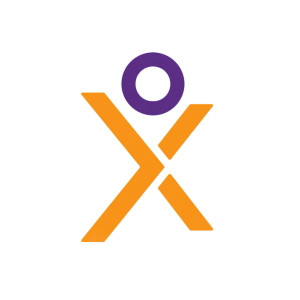SCYNEXIS Presented Preclinical Data on Second Generation Fungerp SCY-247 at the Congress of the European Society of Clinical Microbiology and Infectious Diseases (ESCMID Global, Formerly ECCMID)
Rhea-AI Summary
SCYNEXIS, Inc. presented preclinical data on its second-generation fungerp SCY-247 at the ESCMID Global 2024 congress. SCY-247 showed efficacy in treating invasive candidiasis and displayed in vitro activity against a wide range of pathogenic fungi. The company aims to address the need for new antifungal treatments, especially for drug-resistant infections. The positive data further solidify SCY-247's potential in combating difficult-to-treat infections.
Positive
SCY-247 demonstrated promising in vivo efficacy in treating invasive candidiasis caused by Candida glabrata in a mouse model, with dose-dependent reductions in fungal burden in kidneys and lungs.
SCY-247 exhibited in vitro activity against various pathogenic fungi, including azole-resistant strains of Candida and Aspergillus species.
Negative
- None.
News Market Reaction 1 Alert
On the day this news was published, SCYX gained 1.78%, reflecting a mild positive market reaction.
Data tracked by StockTitan Argus on the day of publication.
- In vivo data demonstrated efficacy of SCY-247 in mouse model of invasive candidiasis caused by Candida glabrata
- SCY-247 showed in vitro activity against a broad range of pathogenic fungi, including azole-resistant strains of Candida and Aspergillus species
JERSEY CITY, N.J., April 30, 2024 (GLOBE NEWSWIRE) -- SCYNEXIS, Inc. (NASDAQ: SCYX), a biotechnology company pioneering innovative medicines to overcome and prevent difficult-to-treat and drug-resistant infections, today announced the presentation of preclinical efficacy data on its second generation fungerp candidate SCY-247 at the ESCMID Global 2024 congress (formerly known as ECCMID) in Barcelona, Spain from April 27-30, 2024.
"We continue to be excited about the potential of our second generation fungerp SCY-247 to address the critical need for new antifungal treatments, particularly for invasive fungal infections where current options are limited and resistance is increasing," said David Angulo, M.D., President and Chief Executive Officer of SCYNEXIS. "The positive data presented at ESCMID Global further strengthen our confidence in SCY-247's ability to combat these difficult-to-treat infections, and we look forward to its continued advancement as we aim to enter clinical stage by year end."
Nathan Wiederhold, Pharm.D., Professor, Director – Fungus Testing Laboratory, University of Texas Health Science Center, San Antonio, delivered an oral presentation entitled, “The novel second-generation IV/oral triterpenoid SCY-247 is efficacious in an experimental murine model of invasive candidiasis caused by Candida glabrata.” C. glabrata, a high priority fungal pathogen on the World Health Organization fungal priority pathogens list (WHO FPPL), is a major cause of invasive candidiasis with an increasing rate of resistance against current antifungals. In a mouse model of invasive candidiasis caused by C. glabrata, SCY-247 showed promising in vivo efficacy. Following inoculation with C. glabrata, mice were treated with either vehicle control, oral SCY-247 (16, 32, & 48 mg/kg), oral fluconazole 20 mg/kg, or parenteral caspofungin 1 mg/kg for 7 days. In mice treated with SCY-247, dose-dependent reductions of fungal burden in both kidneys and lungs were observed. Fungal burden within the kidneys was significantly lower in each SCY-247 group versus vehicle (p0.01 for all comparisons). Lung fungal burden in the SCY-247 32 mg/kg and 48 mg/kg groups was also significantly lower versus placebo (p0.01 for both comparisons). In contrast, caspofungin significantly lowered fungal burden within the kidneys (p=0.01) but not the lungs, while fungal burden in mice treated with fluconazole was similar to controls in both organs. The findings in this model illustrate the meaningful efficacy of SCY-247 against C. glabrata, its ability to reach efficacious concentrations after oral administration and suggests an improved lung penetration of SCY-247 relative to echinocandins.
Dr. Wiederhold also presented a poster entitled, “SCY-247, a novel second-generation IV/oral triterpenoid antifungal, demonstrates in vitro activity against fungal pathogens, including azole-resistant strains of Candida and Aspergillus.” In this study, SCY-247 was tested against 155 clinical isolates of yeasts, molds and dimorphic fungi. SCY-247 demonstrated in vitro activity against a broad range of pathogenic fungi, with the most potent activity observed against Candida species including C. albicans, C. auris, and C. glabrata as well as fluconazole-resistant strains. Potent activity was also observed against Aspergillus species, including voriconazole-resistant isolates, and against the dimorphic fungi Blastomyces dermatitidis, Histoplasma capsulatum, and Coccidioides species.
Both studies presented by Dr. Wiederhold have been funded in whole or in part with Federal funds from the National Institute of Allergy and Infectious Diseases, National Institutes of Health, Department of Health and Human Services, under contract nos. HHSN272201700039 and 75N93019D00022.
A second poster entitled, “Effect of SCY-247, a second-generation triterpenoid antifungal, on growth kinetics and ultrastructure of Candida auris,” was presented by Mahmoud Ghannoum, Ph.D., Professor, Case Western Reserve and Director, Center for Medical Mycology, University Hospitals Cleveland Medical Center. In this study, the antifungal effect of SCY-247 on cell morphology of both susceptible and multi-drug resistant C. auris was evaluated using Scanning Electron Microscopy (SEM) imaging. Results demonstrated that SCY-247 significantly inhibited the growth of both C. auris strains. Importantly, SCY-247 had a prominent effect on fungal cell morphology and significantly reduced fungal growth.
About Invasive Fungal Infections
Candida auris, a critical priority fungal pathogen in WHO fungal priority pathogens list (WHO FPPL), is an emerging fungal pathogen associated with nosocomial infections and considered a serious global health threat. It is often resistant to commonly used antifungal drugs, with about
About SCY-247
SCY-247 is a second-generation antifungal compound, from a novel class of structurally-distinct glucan synthase inhibitors, triterpenoids (fungerps), being developed to address systemic fungal diseases. The triterpenoid class of antifungals represents the first new class of antifungal compounds since 2001. These agents combine the well-established activity of glucan synthase inhibitors with the potential flexibility of having oral and intravenous (IV) formulations. SCY-247 is in pre-IND development stage and has demonstrated in vitro and in vivo broad-spectrum antifungal activity, including in MDR isolates (or spp.). SCYNEXIS anticipates that the U.S. Food and Drug Administration (FDA) may grant SCY-247 Qualified Infectious Disease Product (QIDP) and Fast Track designations for the IV and oral formulations of SCY-247.
About SCYNEXIS
SCYNEXIS, Inc. (NASDAQ: SCYX) is a biotechnology company pioneering innovative medicines to help millions of patients worldwide overcome and prevent difficult-to-treat infections that are becoming increasingly drug-resistant. SCYNEXIS is developing the company’s proprietary antifungal platform “fungerps”. Ibrexafungerp, the first representative of this novel class, has been licensed to GSK. The U.S. Food and Drug Administration (FDA) approved BREXAFEMME® (ibrexafungerp tablets) in June 2021, for its first indication in vulvovaginal candidiasis (VVC), followed by a second indication in November 2022, for reduction in the incidence of recurrent VVC. Late-stage clinical investigation of ibrexafungerp for the treatment of life-threatening invasive fungal infections in hospitalized patients is ongoing. Additional antifungal assets from this novel class are currently in pre-clinical and discovery phase, including the compound SCY-247. For more information, visit www.scynexis.com.
Forward-Looking Statements
Statements contained in this press release regarding expected future events or results are "forward-looking statements" within the meaning of the Private Securities Litigation Reform Act of 1995, including but not limited to statements regarding: SCYNEXIS’s plans to begin a clinical study in SCY-247 by year end, confidence in SCY-247's ability to combat difficult-to-treat fungal infections, and SCY-247’s potential to be differentiated from currently available antifungals. Because such statements are subject to risks and uncertainties, actual results may differ materially from those expressed or implied by such forward-looking statements. These risks and uncertainties include, but are not limited to, risks inherent in regulatory and other costs in developing products. These and other risks are described more fully in SCYNEXIS' filings with the Securities and Exchange Commission, including without limitation, its most recent Annual Report on Form 10-K filed on March 28, 2024, including under the caption "Risk Factors." All forward-looking statements contained in this press release speak only as of the date on which they were made. SCYNEXIS undertakes no obligation to update such statements to reflect events that occur or circumstances that exist after the date on which they were made.
CONTACT:
Investor Relations
Irina Koffler
LifeSci Advisors
Tel: (646) 970-4681
ikoffler@lifesciadvisors.com

FAQ
What data was presented by SCYNEXIS, Inc. at the ESCMID Global 2024 congress?
SCYNEXIS, Inc. presented preclinical efficacy data on its second generation fungerp candidate SCY-247.
What is the focus of SCY-247's potential in treatment?
SCY-247 aims to address the critical need for new antifungal treatments, especially for invasive fungal infections with current options and increasing resistance.
Who delivered an oral presentation at the congress about SCY-247?
Nathan Wiederhold, Pharm.D., presented data on the efficacy of SCY-247 in an experimental murine model of invasive candidiasis caused by Candida glabrata.
What were the key findings of the in vivo efficacy study on SCY-247?
The study showed dose-dependent reductions in fungal burden in both kidneys and lungs of mice treated with SCY-247, indicating significant efficacy against Candida glabrata.
What was the outcome of SCY-247's in vitro testing on various fungi?
SCY-247 demonstrated potent in vitro activity against a broad range of pathogenic fungi, including Candida species and Aspergillus species, even against resistant strains.







